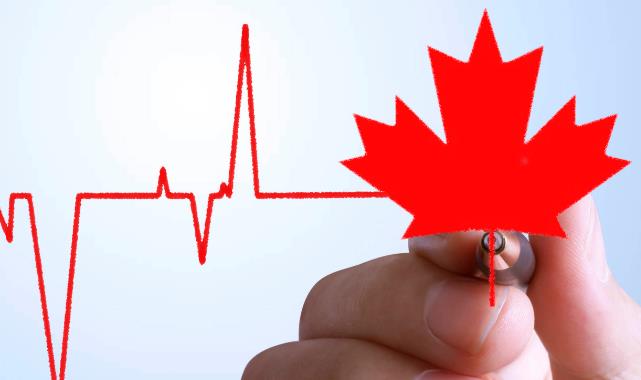Maple Leaf Cards Must Be Renewed Every 5 Years. Do You Know These Renewal Points?
Maple Leaf Cards Must Be Renewed Every 5 Years. Do You Know These Renewal Points?
,Yantai Forum-Yantai Community
Maple Leaf Cards must be updated every five years, and holders must live in Canada for at least two years when they are updated. However, many immigrants have misunderstandings about how their residence period is calculated, which has led to their inability to enter Canada due to failure to hold a valid maple leaf card, thus losing their permanent resident qualifications. Every year, more than 6,000 immigrants lose their permanent resident status due to expired maple leaf card and are unable to return to Canada.
Maple Leaf Card: Login is not as reliable as living time
In 2002, the federal government implemented a maple leaf card system to replace the original registration documents. This move also stipulates that permanent residents must carry maple leaf card with them wherever they are, regardless of where they are.
This plastic card is similar in size to a wallet and expires every five years; the holder must live in Canada for at least two years over a five-year period; it is recommended to stay in Canada for the last two years of the five-year period rather than the first two years; this way, the risk of failure to meet the residence period when the immigration department calculates the residence time is significantly reduced, making it more likely to obtain a new card.
Sonia, a spokesman for Immigration Department, pointed out that the expiration of the Maple Leaf Card does not mean that the permanent resident qualification will be invalid. The key is whether the applicant can confirm to the Canadian immigration department that he is willing and plans to continue to settle in Canada.
The success rate of applying for a travel document is less than 20%
The government observed that in 2013, a total of 19,503 permanent Canadians had to apply for one-time travel documents to return to their home country. However, only 13,211 people, or 70%, were successfully approved. Meanwhile, 5,550 applications were rejected, while the rest were returned.
The vast majority of travel document applicants have the desire to return to their homeland, including about 4,300; followed by 1,800 Indian tourists; followed by 1,545 Filipino tourists; followed by 880 French tourists; 850 British tourists; and 740 tourists from Abu Dhabi.
Rejected applicants have the right to appeal, which will be heard by the Tribunal of the Immigration and Refugee Commission (and the Board of Directors) to return to Canada and resume residence eligibility, but the success rate is usually no more than 20%.
In 2013, the IRB Tribunal received 964 complaints, however, only 166 were approved, and this approval ratio was only 17.2%, a significant decrease from 33.1% in 2010.
Immigration attorney Wong said the approval rate is quite low among permanent residents who were rejected for travel documents. In addition, few of these rejected applicants chose to appeal. According to his estimates, about 5,000 to 6,000 new immigrants will face the dilemma of losing their identity every year.
Source: Immigration Appeals Section of the Immigration and Refugee Commission
Case: Travel documents are not omnipotent
In 2009, Brampton resident Desai filed an immigration application to Canada with the assistance of her son. Last April, a month before her maple leaf card was about to expire, she submitted an application to renew the maple leaf card. However, before the new maple leaf was caught, Desai had to rush back to India to visit her seriously ill mother.
Although the Immigration Bureau prepared a new maple leaf card for her as early as October, Desai's relatives were forbidden from collecting it on their behalf.
Anup Desai, Desai's son, as financial project manager, said: "We applied for travel documents for my mother to Bangalore so that she could return to Canada, but the request was rejected. The mother had obtained a new maple leaf card, but the visa officer mistakenly believed that she had failed to meet the living conditions."
Fortunately, after researching relevant laws, Desai learned that once he becomes a permanent resident in Canada and lives for 12 months, immigration officials will need to sign a document that allows a single trip.
The law explicitly removes the requirement that some new immigrants need to live in Canada, for example, they can accompany Canadian citizens abroad, or work in Canadian businesses or overseas agencies of the federal government.
Even if you go to countries where you do not need a visa, you will be deported to Canada if you do not have a maple leaf card, unless you are a person engaged in commercial transportation.
Wong, a lawyer at the Immigration Bureau, reminds everyone that you must pay attention when applying for a new maple leaf card. After submitting the application, you will still need to go through a long approval process.
He has handled numerous cases, mostly due to the failure of new immigrants to leave Canada after living there for two consecutive years within five years, resulting in their rapid lapse of their identity. However, when the application is submitted and is in the trial stage, the relevant department will usually give the applicant an additional grace period for residence.
Wong said that over the past five years, residents have been in the calculation process, which makes people feel like they are trapped. Indeed, expiration of a maple leaf card does not equate to the loss of permanent resident status, because the validity of the identity is determined by the applicant's length of residence. However, once the maple leaf card expires, its identity will indeed be affected, resulting in the loss of identity. 【Compiled by Lulu of Vancouver LeHuao Network】





